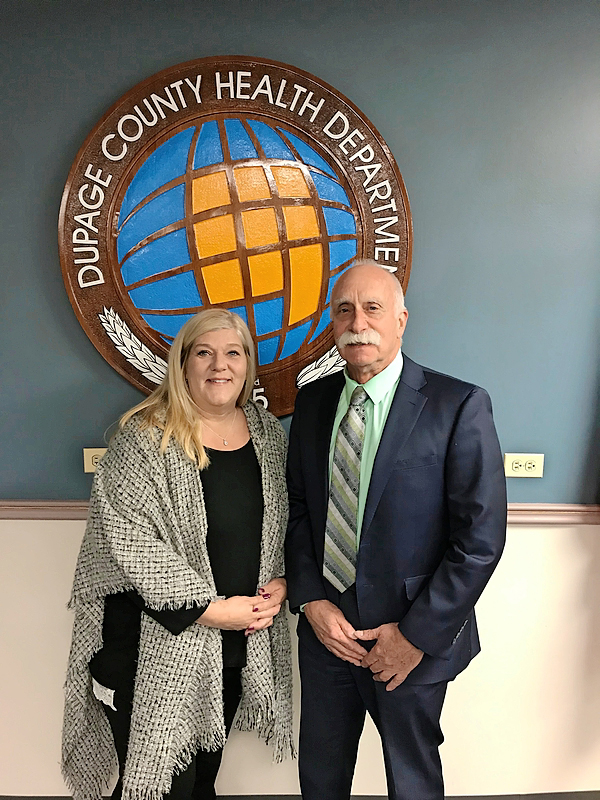Navigating a Difficult Path
By Julie Duffin
December 2019 View more Humanitarian

Sometimes life takes you down an unexpected path, and for Deb Lewin that pivot happened when her son became addicted to drugs. While she was able to find treatment options for him, Lewin struggled to find adequate support for herself and the rest of her family of seven. A year into this journey, she took everything she learned and established a support network for families. “I just wanted to give back and make a difference. To help people not feel so alone, not feel so judged. I wanted to help guide and educate them,” she explains. Through her efforts as executive director, the PATH to Recovery Foundation has become a tremendous resource for those touched by substance abuse.
PATH (Positive Acceptance Towards Healing) helps families navigate their unique journey of recovery. Its mission is to support, educate, and promote treatment for individuals and families struggling with substance use disorders. What started as a support group at Linden Oaks Plainfield in 2014 has now grown into a nonprofit organization that reaches out to the larger community, with meetings in Plainfield, Naperville, Frankfort, Wheaton’s DuPage County Health Department, and Rush Copley Medical Center in Aurora.
“We basically have DuPage, Kane, and Will Counties covered,” explains board president Donald Kalish, another parent who became involved because of a tragic family loss.
Paths converge
Kalish’s life changed abruptly in May 2016 when his wife called him at work to tell him his youngest son was found dead of an unexpected drug overdose. “We had no idea he ever used heroin. We knew he had some issues with Xanax, and had been prescribed them for a long time,” he explains. “What we now know is that Xanax is part of a class of drugs called benzodiazepine, which is very difficult to get off of. We later found out that when he had problems getting his prescription filled, he would get what he could.”
After some time had passed, Kalish, like Lewin, also looked for a way to help others. “Knowing all the collateral damage that happens in families, my goal was to help those who didn’t know what to do, and who they could reach out to,” he explains. Kalish discovered PATH and found it to be a good fit.
He joined the nonprofit in July 2018 and has since used his background in finance and corporate leadership to help expand and provide structure to the foundation. “Our mission is to help families dealing with substance abuse navigate through all the different components of detox, rehab, and recovery. We provide a safe space for them in our family support meetings, which are led by people with coaching credentials who have also been through this. There is absolutely no stigma attached,” he adds. “It’s a safe space for people to communicate.”
The PATH Facebook page and website (pathtorecoveryfoundation.org) provide a wealth of resource guides, including a listing of Chicagoland intensive outpatient/inpatient rehab sites. The organization also supplies families with physical items, such as drug-testing kits and fentanyl-testing strips, as well as Narcan nasal spray, which can help reverse an opioid overdose.
New Beginnings
This March, Lewin’s son will have been clean for seven years. Her advice to other parents: Get educated and find a support system.
“There is help out there for families. There are resources and there are people who care. Don’t do this alone,” she stresses. “People are so afraid to walk into a support group because then they fear everybody will know. But the reality is, everybody already knows. Parents often sense something is wrong but live in denial. We can always come up with reasons to not face our reality. Realize this isn’t a moral failing, it is a disease,” she advises. “Even if your loved one is just starting smoking pot or dabbling little bit, get educated. Try to stop it before it goes all the way. We are here to help.”
GET HELP
If you or a loved one is struggling with opioid, alcohol, or other drug use, specialists at the Illinois Helpline offer help 24/7/365. Call 833-2FINDHELP or visit helplineil.org. Click “Get help” to fill out a confidential form.
Photo courtesy Donald Kalish


